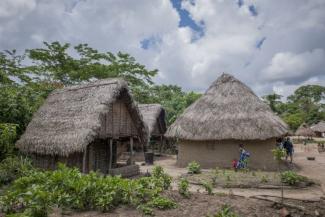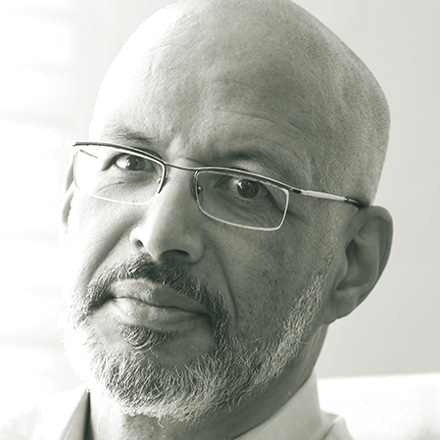Land policy
How to ease tensions in Sierra Leone
 Matthias Graben/Lineair
Matthias Graben/Lineair
Sierra Leone is a land of paradox and contrasts. The country is endowed with an abundance of mineral resources like diamonds, bauxite or iron ore, but the vast majority of the people are living in poverty. The nation was devastated and traumatised by the civil war that ended in 2002. Before the strife, Sierra Leone’s education sector was excellent. Today, the literacy rate is slightly above 30 %.
The government has been rebuilding infrastructure and shoring up institutions, but there still are gaps in health care, education, water and power supply. The country was thus ill prepared when Ebola broke out three years ago, and some 4,000 people were killed by this disease.
Sierra Leone’s social and economic problems are all linked to issues of land use and poverty. Land concerns everyone – whether they are rich, poor, educated or jobless. Most rural people are farmers who depend on fields. Their ownership of those fields is not secure, however, since there are no accurate records. The country lacks a comprehensive cadastral information system.
People fear large-scale land leases to foreign private-sector companies that want to grow sugar cane, palm oil and other cash crops. According to a survey conducted by the Oakland Institute, a California-based think tank, over 20 % of Sierra Leone’s arable land has been handed over to foreign companies this way.
he government argues that large-scale investments will reduce unemployment and bring prosperity. Indeed, major investors such as Addax from Switzerland or SOCFIN have made elaborate promises. However, the leasing agreements are not transparent, and there is reason to doubt that the rates charged reflect the actual value of the land.
In reality, farmers have been forced to sell their land for a pittance. Most hopes for better livelihoods, more jobs and improved schools for the children have not come true. Large-scale land deals have made “thousands of smallholder farmers poorer”, according to Action for Large-scale Land Acquisition Transparency (ALLAT), a civil-society organisation.
Tensions are growing. People are angry because the investors are not showing commitment to corporate social responsibility. Nonetheless, the government offers them tax-breaks and puts down farmers’ protests and resistance. Land-rights activists are being criminalised, and some have been sentenced to jail terms by the courts.
On the other hand, public awareness of the issues is growing, and farmers are organising with land-rights activists. One result is that the government has approved a new land policy. Most land-rights activists say it is commendable. Implementation is a challenge, however. To ensure equity and justice, new institutions are needed, and local authorities as well as civil society must get a say in decision making.
To strike a reasonable balance that suits all relevant stakeholders, several issues must be taken into account. Women, for example, deserve particular attention. As in most West African countries, they do most of the farm work in Sierra Leone. Moreover, it is necessary to ensure that land deals actually serve food security and poverty alleviation. If they do not do so, they must not be approved.
The land-rights activists are now focusing on raising awareness of a UN agreement. The Voluntary Guidelines for the Responsible Governance of Tenure of land, Fisheries and Forest (VGGT) were endorsed by the Committee for World Food Security in 2012. This document has actually inspired Sierra Leone’s new land policy. It emphasises the rights of smallholder farmers, especially when their traditional ownership is not formally documented.
The current tensions over land will ease once the government shows the political will to implement the new policy. It should put a moratorium on large-scale land deals, or at least slow them down. Too many rural people have lost their farms already. Moreover, the government must stop hounding and criminalising land-rights activists.
Elijah Grega is a journalist with Culture Radio in Free Town.

